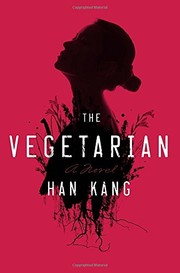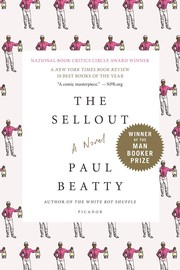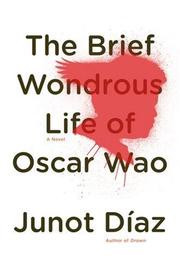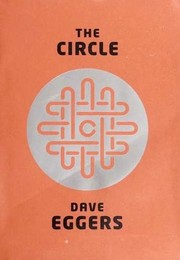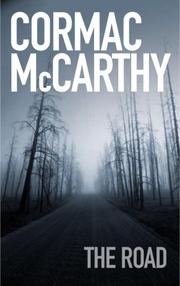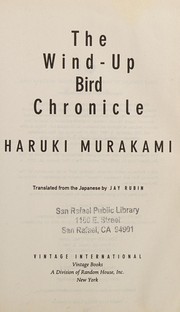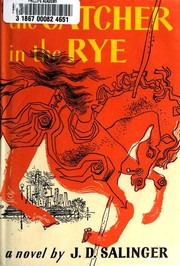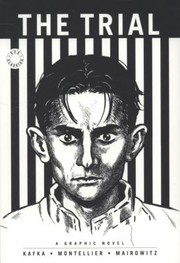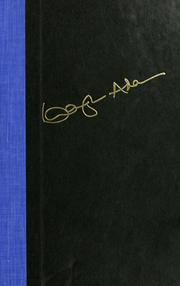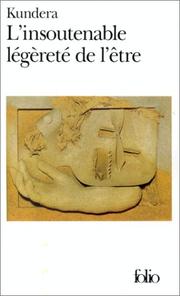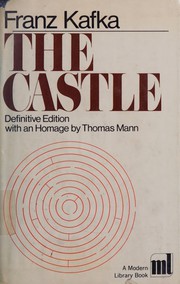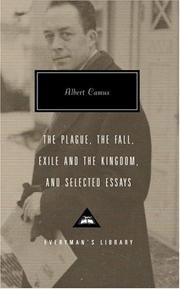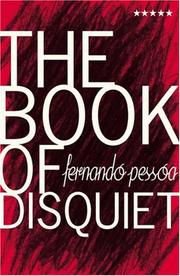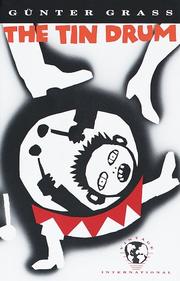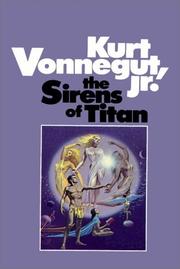Are you ready to dive into the world of absurdism? Whether you’re a seasoned reader of existential philosophy or just starting to explore the depths of absurdity, there’s a book on absurdism out there for you. From classic works by Camus and Kafka to modern interpretations by contemporary authors, the 20 best absurdism books will challenge your perceptions of reality and leave you pondering the meaning of life. Get ready to embark on a mind-bending journey with these thought-provoking reads.
Contents
- 1 20 Best Books About Absurdism
- 2 The Meursault Investigation
- 3 The Vegetarian
- 4 The Sellout
- 5 The Brief Wondrous Life of Oscar Wao
- 6 The Circle
- 7 The Road
- 8 The Wind-Up Bird Chronicle
- 9 The Curious Incident of the Dog in the Night-Time
- 10 The Stranger
- 11 The Catcher in the Rye
- 12 The Trial
- 13 The Hitchhiker’s Guide to the Galaxy
- 14 The Metamorphosis
- 15 The Unbearable Lightness of Being
- 16 The Castle
- 17 The Plague
- 18 The Book of Disquiet
- 19 The Tin Drum
- 20 The Sirens of Titan
- 21 Waiting for Godot
- 22 Conclusion
- 23
- 24 Reading List of Writing Short Stories Books – 2024 Update
- 25 The Bible Books: 2024's Collection of 20 Must-Reads
- 26 Books on Being Happy Alone: 2024 Update of the Best Titles
20 Best Books About Absurdism
The Meursault Investigation
by Kamel Daoud
The Meursault Investigation by Kamel Daoud is a thought-provoking book about absurdism that offers a fresh perspective on Albert Camus’ classic novel, The Stranger. The novel delves into the aftermath of the murder of an unnamed Arab man by the protagonist Meursault, exploring the impact of this act on the victim’s family. Daoud’s powerful narrative challenges the existential themes of Camus’ work and provides a compelling counter-narrative that questions the absurdity of life and the human condition. Through rich prose and complex characters, the author delves into the deep-rooted tensions between colonizer and colonized, and the consequences of violence and alienation. The Meursault Investigation is a captivating and thought-provoking read that offers a fresh perspective on a literary classic, making it a must-read for anyone interested in thought-provoking and engaging literature.
The Vegetarian
by Han Kang
The Vegetarian by Han Kang is a haunting and surreal exploration of the human psyche and the societal pressures of conformity. This award-winning novel follows the story of Yeong-hye, a seemingly ordinary woman who decides to stop eating meat after a series of disturbing dreams. Her choice sets off a chain reaction of events that disrupt the lives of those around her and forces them to confront their own desires and fears. As the narrative unfolds, the reader is drawn into a world of unsettling beauty and psychological turmoil, as Yeong-hye’s decision becomes a catalyst for a series of events that challenge the boundaries of sanity and social norms. The Vegetarian is a thought-provoking and mesmerizing book on absurdism that delves into the complexities of identity, desire, and the consequences of nonconformity.
The Sellout
by Paul Beatty
The Sellout by Paul Beatty is a satirical novel that delves into the complexities of race, identity, and absurdity in American society. The book follows the protagonist, a black man, as he tries to reinstate slavery and segregation in his hometown of Dickens, California. Through a series of outlandish and comical events, Beatty explores the absurdity of racial dynamics and the lengths people will go to in order to assert their own identities. The novel is a thought-provoking and humorous commentary on the absurdity of race relations in contemporary America, and it challenges readers to confront uncomfortable truths about society. The Sellout is a must-read for anyone interested in a thought-provoking book on absurdism that pushes the boundaries of conventional storytelling.
The Brief Wondrous Life of Oscar Wao
by Junot Díaz
The Brief Wondrous Life of Oscar Wao by Junot Díaz is a captivating novel that delves into the life of an overweight, nerdy Dominican boy named Oscar. Set against the backdrop of the Dominican Republic’s history and filled with references to sci-fi and fantasy, the story follows Oscar’s quest for love and acceptance, despite his family’s curse. This book about absurdism explores the absurdity of life and the search for identity, blending elements of magical realism with the harsh realities of immigrant life. Díaz’s vivid and energetic prose brings the characters to life, creating a rich and immersive reading experience. The novel won the Pulitzer Prize for Fiction in 2008, solidifying its status as a modern classic in the genre of absurdism books.
The Circle
by Dave Eggers
The Circle by Dave Eggers is a thought-provoking book about absurdism. It follows the story of Mae Holland, who starts working at the powerful and influential tech company, The Circle. As she rises through the ranks, she becomes increasingly involved in the company’s mission to connect the world and eliminate privacy. The novel explores themes of surveillance, transparency, and the consequences of constant connectivity. Eggers creates a chilling and thought-provoking portrayal of a society driven by technology and the dangers of sacrificing privacy for progress. The Circle is a compelling and timely read that will leave you questioning the role of technology in our lives and the impact it has on society. If you’re looking for an engaging and thought-provoking absurdism book, The Circle is a must-read.
The Road
by Cormac McCarthy
The Road by Cormac McCarthy is a haunting and gut-wrenching tale of a father and son’s journey through a post-apocalyptic world. This bleak and desolate landscape serves as the backdrop for a deeply moving exploration of the human spirit and the struggle for survival. The book delves into themes of existentialism, depicting the characters’ relentless quest for meaning and purpose in a world devoid of hope. Through stark prose and harrowing imagery, McCarthy paints a vivid picture of a world teetering on the edge of oblivion, where the line between good and evil blurs and the only certainty is the constant threat of death. The Road is a powerful and thought-provoking book about absurdism, as it confronts the futility of existence and the struggle to find meaning in a seemingly indifferent universe.
The Wind-Up Bird Chronicle
by Haruki Murakami
The Wind-Up Bird Chronicle by Haruki Murakami is a captivating and surreal novel that delves into the depths of the human psyche. This enigmatic book about absurdism follows the protagonist, Toru Okada, as he embarks on a journey to find his missing wife. Along the way, he encounters a cast of eccentric characters and becomes entangled in a series of bizarre and otherworldly events. Murakami’s masterful storytelling weaves together elements of magical realism, existentialism, and the uncanny, creating a thought-provoking exploration of the absurdity of life and the search for meaning. The novel’s dreamlike atmosphere and intricate narrative make it a compelling read for anyone interested in a thought-provoking and surreal experience. The Wind-Up Bird Chronicle is a must-read for fans of the absurdism genre.
The Curious Incident of the Dog in the Night-Time
by Mark Haddon
The Curious Incident of the Dog in the Night-Time is a captivating book about the inner world of a young boy named Christopher, who has Asperger’s syndrome. Written by Mark Haddon, this novel is a unique coming-of-age story that delves into the mind of a teenager with exceptional mathematical abilities but struggles with social interactions. The book on absurdism explores themes of isolation, truth, and the absurdity of everyday life as Christopher sets out to solve the mystery of the neighbor’s murdered dog. Through his unconventional narrative style and insightful observations, Haddon invites readers to see the world through Christopher’s eyes, offering a thought-provoking and heartwarming exploration of the complexities of human existence.
The Stranger
by Albert Camus
The Stranger by Albert Camus is a powerful novel that delves into the philosophy of absurdism. The story follows Meursault, a detached and indifferent man, as he navigates through a series of unusual events in his life. Set in 1940s Algiers, the novel explores Meursault’s existential crisis, his lack of emotions, and his struggles to find meaning in a world that seems indifferent to his existence. Through Meursault’s experiences, Camus presents a thought-provoking reflection on the human condition and the absurdity of life. The Stranger is a compelling and introspective book about absurdism that challenges readers to question their own beliefs and perceptions of the world.
The Catcher in the Rye
by J.D. Salinger
The Catcher in the Rye by J.D. Salinger is a classic coming-of-age novel that follows the story of Holden Caulfield, a disenchanted teenager who struggles with the phoniness of the adult world. The novel takes place over a few days in New York City and explores themes of alienation, identity, and the search for authenticity. It is a poignant and thought-provoking book about the absurdity of life and the disillusionment of youth. The protagonist’s journey is a reflection of the human condition, making it a compelling read for anyone interested in a book on absurdism or the human experience.
The Trial
by Franz Kafka
The Trial is a classic work of literature that delves into the realm of absurdism. Written by Franz Kafka, this novel follows the protagonist, Josef K., as he navigates a surreal and disorienting legal system. The story unfolds with a sense of unease and confusion, as Josef finds himself accused of an unknown crime and becomes entangled in a nightmarish bureaucracy. The Trial is a thought-provoking exploration of the absurdity of existence and the arbitrary nature of power and authority. This book about absurdism captures the reader’s attention with its haunting and disconcerting atmosphere, offering a compelling commentary on the human condition. Kafka’s masterful storytelling weaves a narrative that is both unsettling and deeply thought-provoking, making The Trial a must-read for anyone interested in the complexities of the human experience.
The Hitchhiker’s Guide to the Galaxy
by Douglas Adams
The Hitchhiker’s Guide to the Galaxy is a classic science fiction comedy novel that takes readers on a hilarious and absurd journey through space. Written by Douglas Adams, this book is a must-read for anyone who enjoys a good laugh and a thought-provoking adventure. At its core, The Hitchhiker’s Guide to the Galaxy is a book about absurdism, challenging the norms of traditional storytelling and embracing the nonsensical and illogical. Adams’ witty writing style and imaginative world-building make this absurdism book a delightful and entertaining read for fans of science fiction and comedy. Join the protagonist, Arthur Dent, as he embarks on a wild and unpredictable journey through the cosmos, armed only with his trusty towel and a copy of the titular guidebook. This book about absurdism is a true masterpiece that will leave readers both amused and contemplative.
The Metamorphosis
by Franz Kafka
The Metamorphosis is a classic work of literature that delves into the theme of existentialism. Written by Franz Kafka, this novella tells the story of Gregor Samsa, a young man who wakes up one morning to find himself transformed into a giant insect. As he grapples with his new form, the story explores themes of alienation, isolation, and the absurdity of life. Kafka’s exploration of the human condition in the face of inexplicable circumstances has cemented The Metamorphosis as a timeless piece of literature. It is a must-read for anyone interested in delving into the complexities of the human experience, making it a quintessential book about absurdism.
The Unbearable Lightness of Being
by Milan Kundera
The Unbearable Lightness of Being by Milan Kundera is a profound exploration of the human condition and the concept of ‘lightness’ versus ‘weight’. Set in Prague during the 1968 political upheaval, the novel follows the intertwined lives of four characters as they grapple with love, politics, and the search for meaning in a world filled with uncertainty. Kundera delves into the complexities of existence, examining the idea that life is fleeting and lacks inherent meaning, a theme that aligns with the principles of existentialism and the human experience. This thought-provoking book on absurdism challenges readers to contemplate the weight of their choices and actions, as well as the significance of individual existence in the vastness of the universe, making it a must-read for anyone interested in a thought-provoking and philosophical exploration of the human experience.
The Castle
by Franz Kafka
The Castle, a classic novel by Franz Kafka, is a captivating exploration of the human condition and the struggle against an unknowable and indifferent system. This surreal and thought-provoking book about absurdism follows the protagonist, K., as he arrives in a village and seeks to gain access to the mysterious and elusive Castle. As he navigates the bureaucracy and absurdity of the village, K. encounters a series of bizarre and often comical obstacles in his quest to understand and make sense of the enigmatic authority represented by the Castle. Kafka’s masterful storytelling and vivid portrayal of the absurdity of human existence make this a must-read for anyone interested in the complexities of the human experience. The Castle is a truly immersive and thought-provoking book on absurdism that will leave readers questioning the nature of power, authority, and the individual’s place in the world.
The Plague
by Albert Camus
The Plague by Albert Camus is a thought-provoking book about absurdism and the human condition. Set in the Algerian city of Oran, the novel follows the lives of the townspeople as they grapple with the outbreak of a deadly plague. Through the lens of the epidemic, Camus explores the existentialist themes of the absurdity of life and the struggle to find meaning in a world filled with suffering and uncertainty. The novel delves into the complexities of human nature, morality, and the resilience of the human spirit in the face of adversity. Camus’ powerful prose and philosophical insights make The Plague a timeless and impactful read, drawing readers into a world that reflects the universal struggles of the human experience. This book about absurdism is a compelling and thought-provoking exploration of the human condition.
The Book of Disquiet
by Fernando Pessoa
The Book of Disquiet by Fernando Pessoa is a remarkable piece of literature that delves into the complexities of human existence. This extraordinary work can be described as a ‘book on absurdism’ as it explores the absurdity of life and the futility of human endeavors. Through the fragmented reflections of the semi-autobiographical character Bernardo Soares, Pessoa takes the reader on a profound journey of introspection and existential contemplation. The book is a powerful ‘exploration of absurdism’ that invites readers to ponder the meaning of their own existence and the inherent contradictions of the human condition. Pessoa’s masterful prose and deep philosophical insights make this ‘absurdism book’ a thought-provoking and compelling read that challenges conventional notions of reality and purpose.
The Tin Drum
by Günter Grass
The Tin Drum by Günter Grass is a remarkable novel that delves into the world of absurdism. Set in Danzig, Germany, during the tumultuous years leading up to World War II, the story follows Oskar Matzerath, a boy who decides to stop growing at the age of three and communicates only through the piercing sound of his tin drum. Through Oskar’s eyes, the reader is taken on a surreal journey through the chaos and absurdity of war, politics, and human nature. The novel is a powerful exploration of the human condition, filled with dark humor, grotesque imagery, and a unique perspective on the world. The Tin Drum is a groundbreaking book about absurdism that challenges conventional storytelling and offers a thought-provoking look at the irrationality of existence.
The Sirens of Titan
by Kurt Vonnegut
The Sirens of Titan, a novel by Kurt Vonnegut, is a thought-provoking and humorous exploration of the human condition. This absurdist book takes readers on a journey through space and time, following the misadventures of Malachi Constant as he becomes a pawn in the grand cosmic scheme orchestrated by the mysterious Tralfamadorians. Vonnegut’s witty prose and satirical commentary on the absurdity of life make this book about absurdism a captivating and enlightening read. Through its eccentric characters and mind-bending plot twists, The Sirens of Titan offers a unique perspective on fate, free will, and the meaning of existence. With its blend of science fiction and philosophical musings, this absurdism book challenges readers to question their place in the universe and ponder the absurdity of it all.
Waiting for Godot
by Samuel Beckett
Waiting for Godot is a renowned play and a classic in the world of literature. Written by Samuel Beckett, it is a groundbreaking work in the realm of absurdism. The play follows two characters, Vladimir and Estragon, as they wait for someone named Godot who never arrives. As they wait, they engage in philosophical discussions, absurd activities, and encounters with other eccentric characters. The play is filled with existential themes, absurd humor, and a sense of hopelessness, which makes it a thought-provoking and enigmatic piece of literature. Waiting for Godot is a must-read for anyone interested in the human condition, the meaning of life, and the complexities of existence. It is a book on absurdism that challenges the conventional norms of storytelling and leaves a lasting impact on its readers.
Conclusion
In conclusion, these 20 best books about Absurdism offer a thought-provoking exploration of the human experience and the inherent meaninglessness of life. From classic works by Camus and Kafka to contemporary explorations of existentialism, these books challenge readers to confront the absurdity of existence and find meaning in a seemingly irrational world. Whether you’re new to the philosophy of absurdism or a seasoned reader seeking new perspectives, these books provide a diverse and enriching journey into the complexities of human existence.
Which Absurdism book is best?
The best book on Absurdism can vary with personal preference, but three widely recommended titles are:
Each offers valuable insights and could be a great starting point.
What are the best books to learn about Absurdism?
For those looking to learn about Absurdism, there is a wealth of literature that can provide a comprehensive understanding of the subject. Some of the most highly recommended books include:
- The Meursault Investigation by Kamel Daoud,
- The Vegetarian by Han Kang,
- The Sellout by Paul Beatty,
- The Brief Wondrous Life of Oscar Wao by Junot Díaz,
- The Circle by Dave Eggers,
- The Road by Cormac McCarthy,
- The Wind-Up Bird Chronicle by Haruki Murakami,
- The Curious Incident of the Dog in the Night-Time by Mark Haddon,
- The Stranger by Albert Camus,
- The Catcher in the Rye by J.D. Salinger
These books offer a range of perspectives on Absurdism, covering various aspects and approaches to the subject.
What are the best books on Absurdism?
The best books on Absurdism include:
- The Meursault Investigation by Kamel Daoud,
- The Vegetarian by Han Kang,
- The Trial by Franz Kafka,
- The Hitchhiker’s Guide to the Galaxy by Douglas Adams,
- The Curious Incident of the Dog in the Night-Time by Mark Haddon,
- The Road by Cormac McCarthy.
Each offers unique insights into the subject. While these books on the topic of Absurdism are highly regarded, it’s important to note that any list of ‘best’ books is subjective and reflects a range of opinions.
What are the best Absurdism books of all time?
Choosing the best Absurdism books of all time can vary depending on who you ask, but seven titles that are often celebrated include
- The Meursault Investigation by Kamel Daoud,
- The Vegetarian by Han Kang,
- The Circle by Dave Eggers,
- The Curious Incident of the Dog in the Night-Time by Mark Haddon,
- The Catcher in the Rye by J.D. Salinger,
- The Hitchhiker’s Guide to the Galaxy by Douglas Adams,
- and The Trial by Franz Kafka.
Each of these books has made a significant impact in the field of Absurdism and continues to be influential today.


